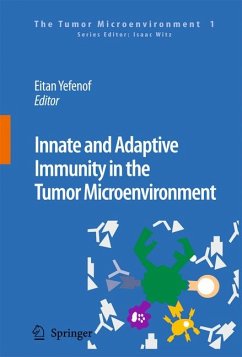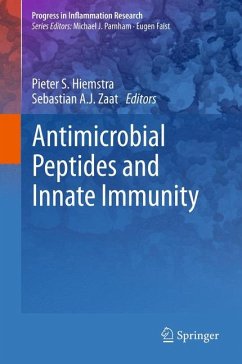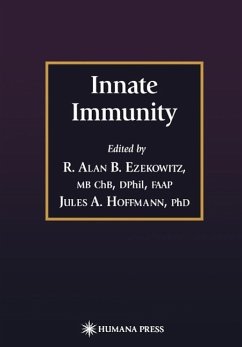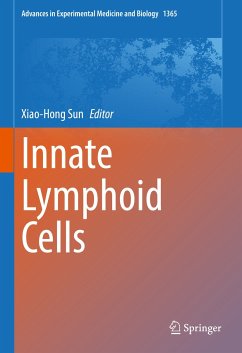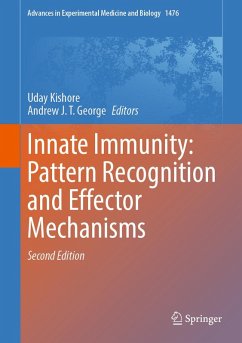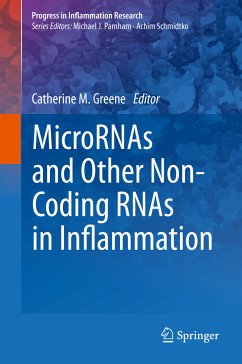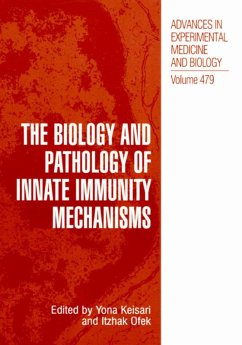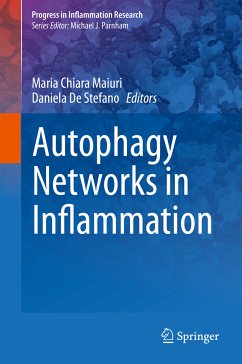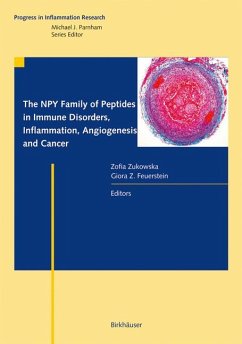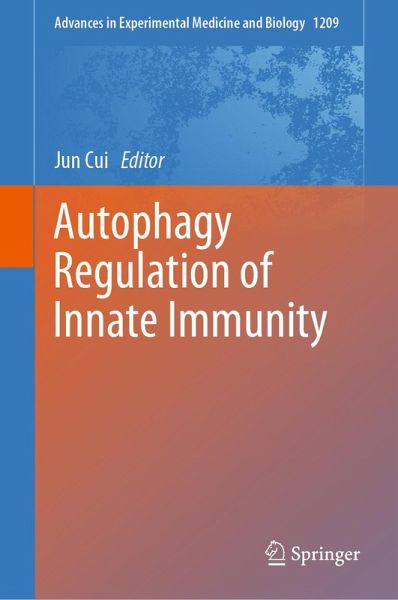
Autophagy Regulation of Innate Immunity (eBook, PDF)
Versandkostenfrei!
Sofort per Download lieferbar
72,95 €
inkl. MwSt.
Weitere Ausgaben:

PAYBACK Punkte
36 °P sammeln!
This book discusses novel concepts and discoveries concerning the regulation of innate immunity by autophagy and autophagy-related proteins. In the past decade, there have been major advances in our understanding of the molecular mechanisms of autophagy and its physiological functions. This book highlights emerging studies on the underlying mechanisms of autophagy regulation of innate immunity, including inflammation, antiviral immunity and anti-bacterial responses and the signaling pathways that prompt or inhibit the initiation and progression of related diseases. It also offers new ideas and...
This book discusses novel concepts and discoveries concerning the regulation of innate immunity by autophagy and autophagy-related proteins. In the past decade, there have been major advances in our understanding of the molecular mechanisms of autophagy and its physiological functions. This book highlights emerging studies on the underlying mechanisms of autophagy regulation of innate immunity, including inflammation, antiviral immunity and anti-bacterial responses and the signaling pathways that prompt or inhibit the initiation and progression of related diseases. It also offers new ideas and strategies for future drugs based on manipulating autophagy, especially selective autophagy mediated by cargo receptors. Providing a comprehensive overview of the autophagy regulation of innate immunity, it is a valuable resource for graduate students and researchers in the fields of immunology, cell biology and translational medicine.
Dieser Download kann aus rechtlichen Gründen nur mit Rechnungsadresse in A, B, BG, CY, CZ, D, DK, EW, E, FIN, F, GR, HR, H, IRL, I, LT, L, LR, M, NL, PL, P, R, S, SLO, SK ausgeliefert werden.



